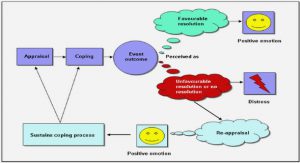Get Complete Project Material File(s) Now! »
Benefits and Challenges of involving Ordinary Citizens in Re-search-Improvement Dialogue.
The author´s first research question help facilitate the understanding of benefits and challenges involved in research-improvement dialogue between ordinary citizens and researchers and how the present social situation, actions and activities of individuals or member in a shared environment or community that can lead to collaborations as well as who they are willing to collaborate with. Based on the authors empirical data, some researchers/individuals were willing to collaborate for research work but only with a particu-lar group of people such as colleagues, friends and others in most cases. Therefore, there must be rea-sons for that and we hope this will pave a way to provide answers to the second research question of this study by knowing why and how social network can help.
RQ1: What are the benefits and Challenges of involving ordinary citi-zens in research-improvement dialogue?
With a great relevance and emphasis to this study, the authors regard ordinary citizens to be any person who is not a researcher in a particular domain. Therefore, an ordinary citizen can be a student, patient, lay person or any person in the general public. To involve an ordinary citizen to participate in establish-ing collaboration for research-improvemnet dialogue through dynamic social networking is very crucial to this study. However, the involvement of ordinary citizens could be challenging or be of benefits to re-search collaboration and this is what the authors will unfold and present in this part or section of the thesis.
According to Kaenampornpan M. (2004), humans only manage to interact in high contextualized man-ners as they cannot really integrate and totally comprehend the fortune of others activities aims, inten-tions and states. As a result, the dynamic nature of computing services and the technological world has placed potential effect and influence on user’s activities and relationships amongst each other. However, the way people view social networking sites can actually affect the way they will collaborate and act in the network. Notwithstanding, most research works are collaborative within the research groups and with the benefit and information revolution (social media) that draws mass populations of individuals to par-ticipating in social networking activities. They use this tool to enhance their interaction and at the same time to reduce obstacles as well as reaching new divergent ideas and improve learning.
With reference to the authors´ empirical study, if a person did not belong to an environment (social net-working) where the person was carrying out specific research-dialogue or knew others who actually carry out such activities, it might be difficult to actually be socially aware of such research social networking talk less of belonging and participating in the networks. For instance, quoting directly some of the re-spondents based on the gathered empirical data:
“Professional groups think, express and speak professionally from a professional set. However, this view may be less valua-ble than to have input by the very ones that the professionals serve…” (Non- researcher).
“I think individuals should stick to their domains and levels otherwise it would make me less interested. It is better to have separate places” (Researcher).
To analyse these two statements above, it is very obvious that there might be some challenges to involve ordinary citizens in research collaboration because of differences based on individual experience, knowledge, mind-set and perceptions on both part of the researchers and ordinary citizens. In compari-son to all these perceptions, it is understandable that researchers can benefit from involving ordinary cit-izen and vice-versa but at the same time it could be of disadvantages.
For instance, some researchers re-sponded to the research question stating:
“Well, it depends. Patients can get help from specialists; students can get advice from researchers. But if a person has no background in the area of the research network it can be difficult for the person to understand what is going on in this area, that is to really participate in a research social network can be difficult. However, researcher can get interesting hints and ideas from ordinary citizens, that is researchers may learn what is really important for the society (not only what is im-portant for writing publications”).
1 Introduction .
1.1 Background .
1.2 Problem Discussion
1.3 Purpose
1.4 Research Questions .
1.5 Delimitation
1.6 Definition of Terms ..
1.7 Outline of the Thesis
2 Frame of Reference
2.1 Choice of Theory
2.2 Social Capital
2.2.1 Trust, Knowledge Sharing, Shared Norms and Citizenship
2.3 Levels of Social Capital
2.4 Dimension of social Capital: Relational, Structural and Cognitiv
2.4.1 Relational Dimension/Approach
2.4.3 Cognitive Dimension/Approach .
2.5 Bonding and Bridging Social Capital
2.6 Potential Benefits and Disadvantage with Social Capital
3 Methodology
3.1 Research Approach
3.1.1 Research Design .
3.1.2 Research Method/Strategy
3.2 Data Collection .
3.2.1 Quantitative Method
3.2.2 Qualitative Method.
3.3 Data Sources
3.3.1 Secondary Data
3.3.2 Primary Data
3.3.3 Questionnaire .
3.3.4 Interview
3.3.5 Observation
3.4 Analysis of Dat
3.4.1 Interview Analysis
3.4.2 Questionnaire Analysis .
3.4.3 Observation Analysis
3.5 Credibility
3.6 Reliability
3.7 Validity
4 Result of Empirical Findings
4.1 Awareness of Social Networking Sites for Research Purpose
4.2 Research Collaboration through Social Network Sites
4.3 Activities and Purpose of using Social Networking Sites for Research Collaboration
4.4 Observations of Social Network Sites for Research Collaboration
5 Analysis
6 Conclusion .
7 Discussion
References
GET THE COMPLETE PROJECT
Improving Researcher-Patient Collaboration through Social Network Websites




